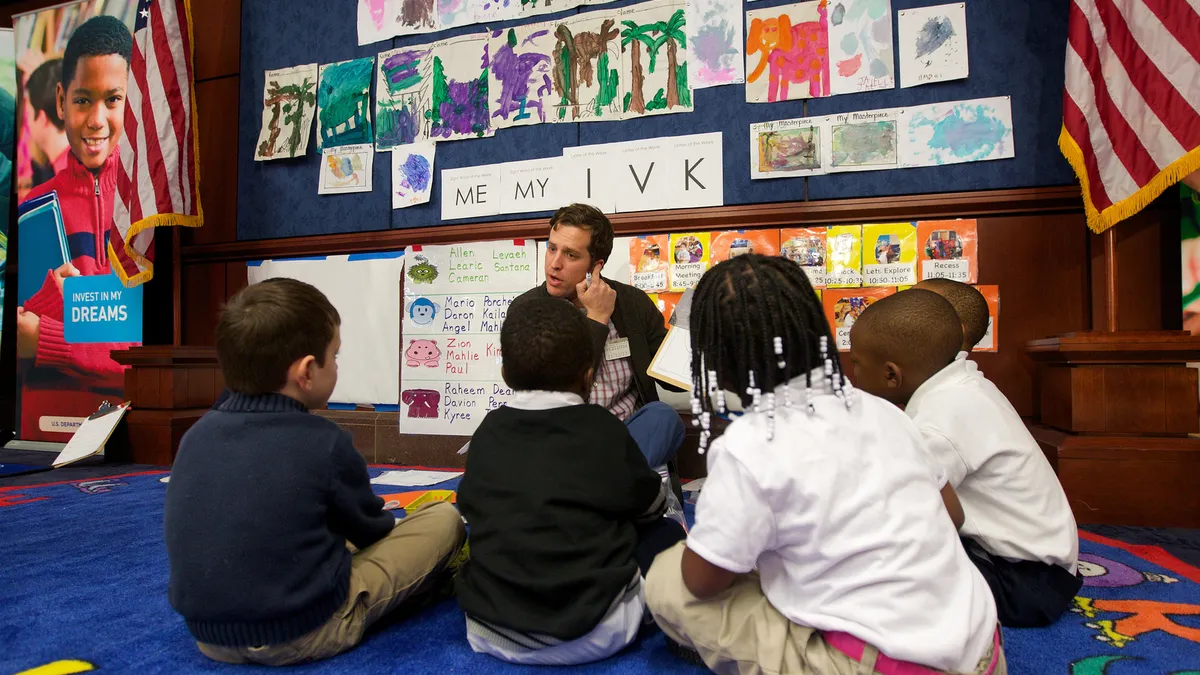Dive Brief:
- After years of believing dyslexic students need unique tools to learn how to read and decode written language, Kyle Redford, a 5th grade teacher at Marin Country Day School in the San Francisco Bay Area, now believes all students would benefit from the use of phonics in literacy instruction, he writes for Education Week.
- Redford suggests that while half of all students will learn to read with just basic phonics instruction and some don’t need phonics instruction at all, most students can benefit from learning to read through this tool.
- To Redford, struggling readers should be eyed through the lens of what is missing in their instruction, recommending that educators personally assess their own teaching and consider weaving phonics back into their classroom if they're not already using this approach to literacy.
Dive Insight:
Children who aren’t reading at grade level by the end of the 3rd grade have an uphill battle catching up with their peers. A staggering 74% of struggling readers at that point won’t be able to get up to speed with their fellow students — a significant concern, as 3rd-grade reading proficiency is considered “one of the most important predictors of graduating from high school,” according to nonprofit Reading Foundation.
Effective literacy instruction, then, is crucial for all students, with administrators and educators needing to find the best practices that make sense for their school, students and district. It’s crucial to note that there isn’t just one method, nor just one set of resources that should be followed. Literacy, however, is something that can be addressed and woven into every subject and every course.
With English language learners, educators can use poetry and have students work in groups, helping them discover patterns in sounds, words and letters. Spoken word projects are also a powerful way to weave literacy into classroom learning and can even help students develop social emotional learning (SEL) skills like confidence. Teachers can certainly get involved in the process, writing their own pieces to help kickstart reluctant students.
Educators can also ensure students are connected to material that is culturally relevant — either by hitting topics that students can connect with today or material that resonates with students, where they can find themselves reflected in the books and stories they read for class. That’s a point actor and former "Reading Rainbow" host LeVar Burton, who also runs the literacy organization LeVar Burton Kids, made with Reading is Fundamental CEO Alicia Levi during a March interview.
It’s crucial for administrators to source different literacy methods, and to also work with educators to bring a coordinated effort so students have the tools and support needed for academic success.













